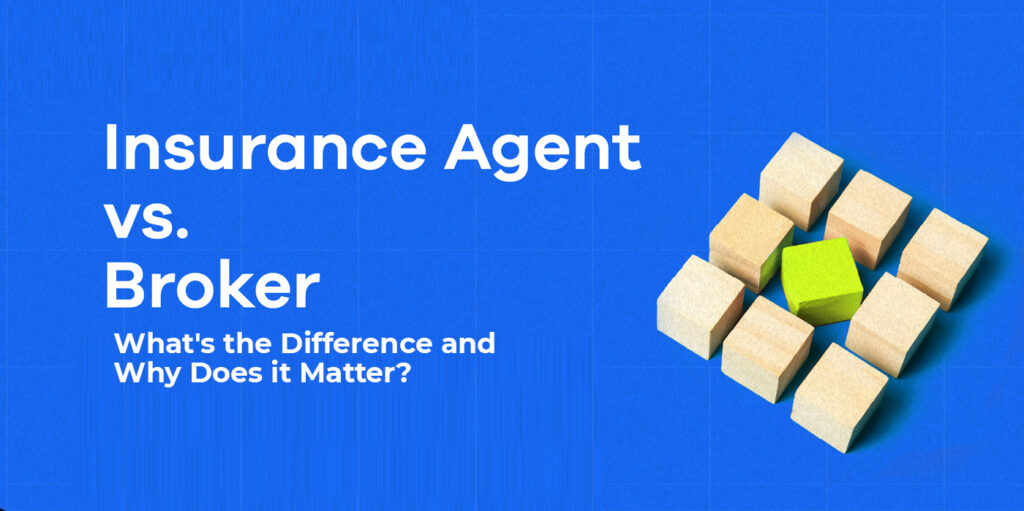The insurance industry is vast and can often be confusing for individuals and businesses alike. Whether you’re purchasing car insurance, life insurance, or business coverage, one of the key decisions you need to make is whether to work with an insurance broker or an insurance agent. Understanding the difference between the two can make a significant impact on your insurance experience.
This article from RSH Oman Insurance Agents – one of the leading Insurance agents in Muscat aims to clarify the roles and responsibilities of insurance brokers and agents, helping you make an informed decision on which professional is best suited for your needs.
Difference Between Insurance Agents and Brokers
Insurance Agent: An insurance agent is a professional who represents an insurance company. Their role is to sell policies on behalf of the insurer. Agents typically work directly for or are contracted by a specific insurance company, such as LIVA Insurance, and they offer only the products provided by that company.
Insurance Broker: An insurance broker, on the other hand, represents the client. Brokers act as intermediaries between the client and multiple insurance companies. Their primary responsibility is to help the client find the best possible policy, often shopping around among various insurers to meet the client’s specific needs.
Insurance Agents and Brokers: Key Differences
1. Representation:
The main difference between agents and brokers lies in who they represent. Agents work on behalf of an insurance company, while brokers represent the client’s interests.
2. Product Offerings:
Brokers usually have access to a wide range of insurers and products, which allows them to offer a broader selection of policies. In contrast, agents can only provide the products of the specific insurance company they represent.
3. Fee Structures:
Brokers may charge fees for their services because they work independently and provide a tailored service. Agents, however, typically do not charge additional fees, as they earn a commission from the insurer for selling policies.
4. Licensing and Training:
Brokers often require specialized licenses and training to offer their services across various insurers. Insurance agents also require licensing, but their training focuses on the specific products of the insurance company they represent.
5. Conflict of Interest:
Since agents represent insurers, there may be a potential conflict of interest, as they are motivated to sell policies from their company. Brokers, on the other hand, prioritize the client’s needs, offering impartial advice since they are not tied to any single insurer.
Benefits of Working with an Insurance Broker
1. Access to Multiple Insurers:
Brokers provide access to policies from different insurers, allowing you to shop around for the best price and coverage.
2. Impartial Advice:
Since brokers do not represent a specific company, they can offer unbiased advice based on what’s best for the client.
3. Customized Solutions:
Brokers can tailor insurance policies to meet your unique needs, whether it’s for an individual or a business.
4. Claims Support:
Many brokers offer claims assistance, helping you navigate the often complicated claims process with ease.
5. Ongoing Service:
Brokers typically provide ongoing support and can review your policy as your needs change, ensuring you remain adequately covered.
Benefits of Working with an Insurance Agent
1. Personalized Service:
If you’re looking for a more personal touch, working with an insurance agent is ideal. Agents build strong, long-term relationships with their clients and can offer tailored advice based on in-depth knowledge of their company’s products.
2. In-Depth Knowledge:
Agents are experts on the products and services offered by the insurance company they represent. This means they can provide detailed information and help you select the right policy based on your specific needs without the need to compare multiple providers.
3. Simplified Process:
Agents make the insurance process easier by handling all the paperwork and guiding you through each step. Their familiarity with the insurer’s policies and systems allows them to offer a seamless, hassle-free experience when purchasing or renewing your policy.
4. Cost-Effective Solution:
Since agents typically don’t charge additional fees for their services, working with them is cost-effective. They earn commissions from the insurance company, which means you get expert assistance without paying extra.
5. Company Loyalty Benefits:
Agents often provide insight into exclusive benefits and loyalty rewards that come with sticking to one insurer. If you’re someone who prefers working with a single trusted provider over time, an agent can help you maximize long-term savings and advantages.
Conclusion
Understanding the differences between insurance brokers and agents is essential to making an informed decision about your coverage. While brokers offer access to a wide range of products and provide impartial advice, agents have in-depth knowledge of their company’s policies and can offer more personalized, cost-effective service.
If you’re seeking personalized support, a smooth insurance process, and cost-effective service, choosing an insurance agent is the right decision. For those in Muscat, RSH Oman Insurance Agents are your trusted partner for all LIVA Insurance products, offering top-notch service to meet your insurance needs effortlessly. Whether you’re looking for car insurance in Oman, health insurance, or business coverage, RSH Oman Insurance Agents are the trusted name to guide you through the process with ease


